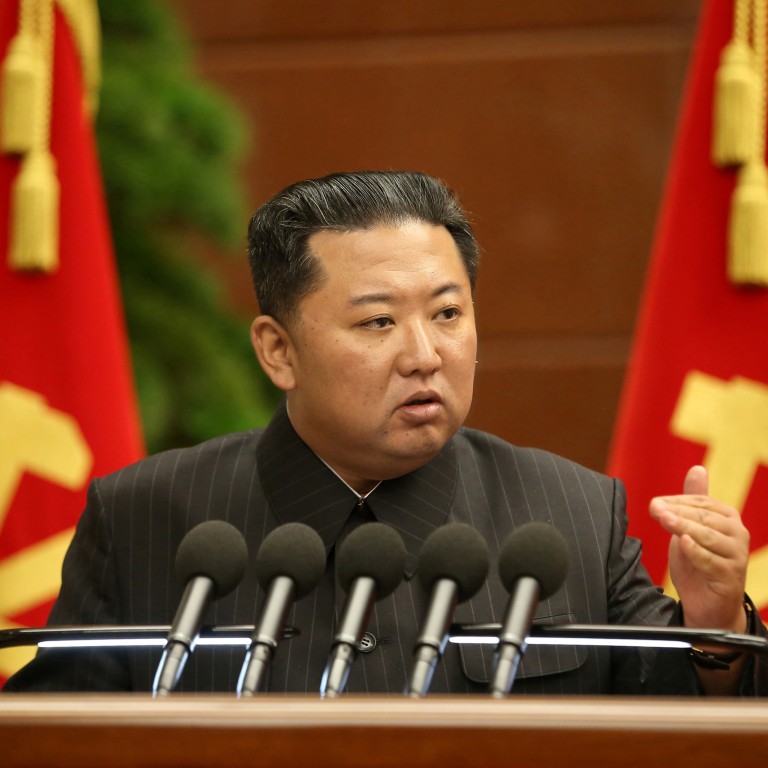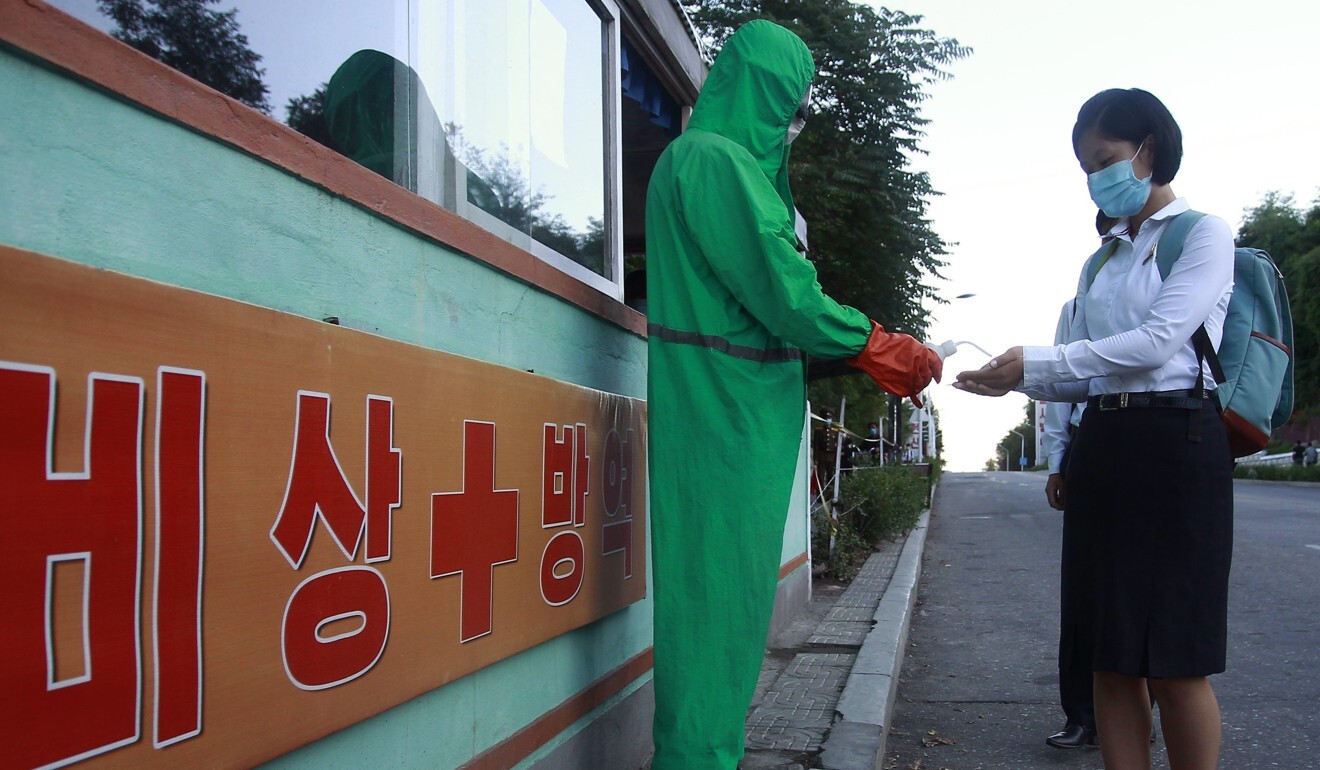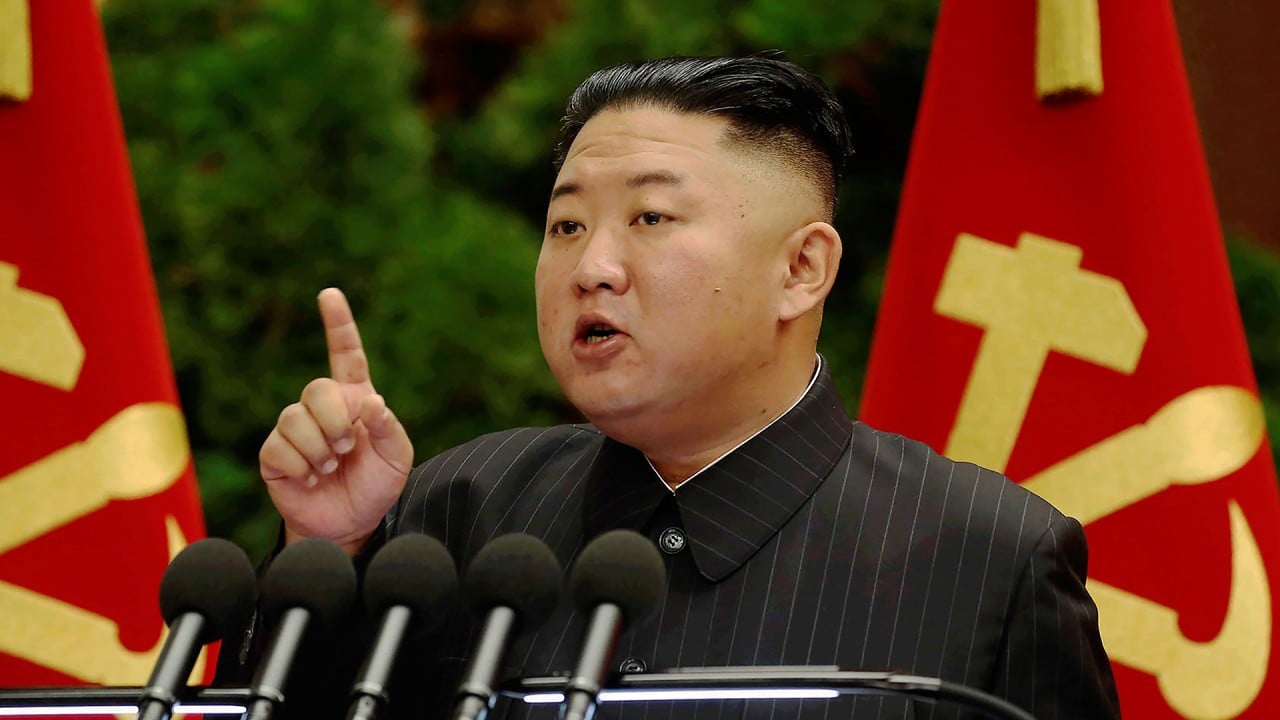
Coronavirus: why did North Korea turn down 3 million Sinovac vaccine doses?
- North Korea claims to be Covid-free and requested that the shots from the Covax Facility be redirected to countries experiencing surges
- Kim Jong-un touted ‘our style’ of pandemic control, and analysts say safety and efficacy fears, showing self-isolation works and ‘saving face’ could explain the move
The North’s Ministry of Public Health said it would continue to communicate with the Covax Facility, the international distribution scheme that allotted the jabs, about taking delivery of vaccines in the “coming months”, according to Unicef.
Pyongyang earlier refused offers of the AstraZeneca vaccine because of concerns over rare side-effects, a South Korean think-tank affiliated with Seoul’s spy agency revealed in July. And Russia’s foreign ministry said that same month that Moscow had repeatedly offered to supply its home-grown vaccines. Kim’s regime has yet to give any indication it has accepted its Cold War ally’s help.
North Korea’s pandemic isolation fuels humanitarian disaster fears
North Korea sealed its borders in January 2020 and has not reported any cases of Covid-19, a record widely doubted by observers given the infectiousness of the coronavirus and the country’s vast land border with China.
Kee Park, a lecturer at Harvard Medical School who has made numerous humanitarian trips to North Korea, said he believed Pyongyang wanted to send the message that its self-imposed isolation had kept it safe.
“Their confidence in their public health measures also allows them to take a more patient approach to see what, if any, issues arise with these new vaccines as they get rolled out,” Park said.
“They have also spoken out against vaccine inequities at the World Health Assembly a few months ago and this gesture is consistent with their concern that poor countries with significant outbreaks should be provided with vaccines.”

On Thursday, Kim told officials to double down on “our style” of pandemic control, according to the state-run Korean Central News Agency.
North Korea, which promotes an ideology of self-reliance known as juche, is known for shunning the international community, earning the moniker of “the hermit kingdom”.
During the 1990s, the North downplayed food shortages until a widespread famine that killed an estimated 240,000-3.5 million people forced it to seek international assistance.
How will ‘emaciated’ Kim ride out a famine in North Korea? With China’s help
“Saving face is a strong cultural motivator for Koreans,” said Dan Chung, executive director of Crossing Borders, a US-based Christian aid group that works with North Korean refugees. “Though it seems as if North Koreans are reaching out for help, a moment later they could indicate the exact opposite. This makes helping North Korea all the more complex.”
Chung pointed to accounts of the 1990s famine, during which international aid workers reported being led on scripted tours of the capital that concealed the extent of the crisis.
“When UN officials arrived, they were taken on the standard tour of North Korea,” he said. “They were shown the thriving, healthy people of Pyongyang and were not able to venture outside of their carefully guided tour. They left confused. Some were convinced there was no famine.”

01:00
North Korean leader Kim Jong-un scolds officials for ‘great crisis’ caused by coronavirus lapse
Despite the North’s reputation for secrecy, Kim Jong-un has acknowledged the growing economic toll of the country’s isolation, with speeches in recent months describing a “crisis of hardships” and “tense” food situation.
North Korea’s trade with China, which accounts for about 90 per cent of total volumes, fell to a record low in the first half of 2021, according to Chinese customs data. China’s exports to its neighbour declined more than 85 per cent to US$56.77 million over the period, while imports fell 67 per cent to US$8.96 million, according to the figures.
South Korea’s central bank estimated in July that the North’s gross domestic product contracted 4.5 per cent in 2020, the steepest decline since 1997.
Chronic food insecurity has been made worse by droughts and typhoons, as well as international sanctions targeting the Kim regime’s illicit nuclear and missile programmes. In July, the UN’s Food and Agriculture Organization said the North could suffer a food shortage of 860,000 tonnes in 2021.
China-North Korea trade at record low amid pandemic, food shortages
Nagi Shafik, the former project manager for the World Health Organization office in Pyongyang, said the North could be hesitant to roll out vaccines due to reports of rare complications and efficacy concerns that have been highlighted elsewhere.
“It may sound strange, but when trying to understand, I think perhaps they are concerned about the possible side-effects of the AstraZeneca vaccine,” Shakif said. “As for the Sinovac, perhaps they think, like many other countries in the world, it is not efficient enough.
“The real question for me: for how long will the borders be closed?”

